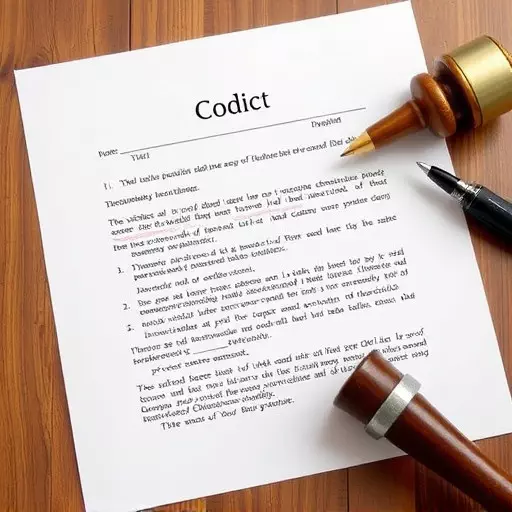An Estate Executor plays a crucial role in executing an individual's estate plan post-mortem in California. They manage assets, ensure legal compliance, and interpret complex documents like wills, codicils, and amendments drafted by attorneys in Palo Alto. Effective planning requires meticulous document drafting to accurately reflect the testator's wishes while navigating legal frameworks. Strict requirements must be followed, with codicils and amendments enabling flexible changes. Executors handle asset distribution, stay current with life changes, and collaborate with lawyers to maintain valid modifications. An experienced attorney in Palo Alto guides families through legal documents, ensuring compliance and offering strategic advice. Strategic record-keeping and staying updated on laws facilitate efficient estate management. Utilizing will codicils and amendments guided by a qualified attorney ensures dynamic planning and minimizes disputes among beneficiaries.
An Estate Executor plays a crucial role in administering the affairs of a deceased individual, ensuring their final wishes are fulfilled. This comprehensive guide navigates the complex landscape of estate management, focusing on key duties and best practices for efficient administration. From understanding legal requirements to handling amendments and the attorney’s involvement in Palo Alto, California, this article offers valuable insights for those tasked with executing an estate plan, including guidance on will codicils and effective legal drafting techniques.
- Understanding the Role of an Estate Executor
- Legal Requirements for Executing an Estate
- Responsibilities Towards the Will and Codicils
- Handling Amendments and Changes in Estate Planning
- The Attorney's Involvement in Estate Administration
- Best Practices for Efficient Estate Management
Understanding the Role of an Estate Executor
The role of an Estate Executor is pivotal in the seamless execution of an individual’s estate plan after their passing. This fiduciary responsibility involves administering and managing the deceased’s assets, following their wishes as outlined in their will, codicils, or amendments, and ensuring legal compliance. An Executor must be adept at navigating complex legal frameworks, especially when dealing with intricate estate planning documents prepared by an attorney in Palo Alto, California.
Estate planning is a meticulous process that often includes the drafting of detailed legal documents to reflect an individual’s wishes. These documents may include a will, codicils to modify existing wills, or amendments to ensure the will remains current and accurate. An Executor must possess a thorough understanding of these legal instruments to interpret them correctly and act in accordance with the testator’s intentions. They are responsible for gathering and managing assets, paying debts and taxes, distributing property as specified in the will, and ensuring all legal requirements are met to avoid potential disputes or legal complications.
Legal Requirements for Executing an Estate
When executing an estate, there are stringent legal requirements that must be followed to ensure validity and compliance with California’s probate laws. The primary document guiding this process is the will, which outlines how a deceased individual’s assets and property should be distributed. However, flexibility is permitted through codicils and amendments, allowing for adjustments without rewriting the entire will. These changes must adhere to specific legal drafting standards to avoid invalidation.
An estate executor, often a named beneficiary or close relative, is responsible for ensuring these legal requirements are met. They must carefully manage and protect the deceased’s assets, handle financial affairs, and navigate the complexities of probate court procedures. This includes timely filing of necessary documents, such as the will, inventory of assets, and final tax returns, with relevant authorities in Palo Alto, California, or the designated jurisdiction.
Responsibilities Towards the Will and Codicils
As an estate executor, one of the primary duties is to manage and uphold the terms of the will and any codicils or amendments. This involves a meticulous review of legal documents drafted by an attorney in Palo Alto, California, ensuring that every provision is accurately reflected and legally sound. The executor must be diligent in following the testator’s wishes as outlined in these documents, which can include specific instructions regarding asset distribution, beneficiary designations, and even details on personal preferences.
Regularly updating and amending the will, when necessary, is another crucial aspect of this role. Changes in life circumstances, such as marriages, births, deaths, or significant financial shifts, may warrant revisions to the original plan. The executor should stay current with legal drafting practices and work closely with an attorney in Palo Alto to ensure that any modifications are properly executed and meet the legal standards required for validity.
Handling Amendments and Changes in Estate Planning
Estate planning is a dynamic process, and circumstances can change over time, leading to the need for amendments and updates. As an estate executor in Palo Alto, California, it’s crucial to be prepared for these adjustments. A will codicil or amendment allows for modifications to a will, ensuring that it remains current and reflects the testator’s latest intentions. These legal documents are drafted by attorneys specializing in estate planning and legal drafting, who can guide clients through the process of updating their wishes.
When changes occur, whether due to new financial arrangements, relationships, or health conditions, an experienced attorney can help navigate these shifts. They will codicils and amendments ensure that the estate plan remains valid and legally enforceable. This proactive approach guarantees that the executor has clear guidance during what can be a complex and sensitive time, allowing for a smoother administration of the estate.
The Attorney's Involvement in Estate Administration
In the realm of estate planning, an attorney plays a pivotal role in navigating the intricate process of estate administration. When it comes to managing a deceased individual’s assets and ensuring their wishes are carried out, legal expertise is indispensable. The attorney in Palo Alto, California, specialized in these matters, serves as a crucial asset for families going through what can be a challenging and emotional time. They guide clients through the preparation and implementation of wills, codicils, and amendments, ensuring that every detail is accurately documented to withstand legal scrutiny.
Estate planning involves complex legal drafting, and an attorney with expertise in this field can help minimize potential disputes or errors. They assist in interpreting the language within documents, clarifying ambiguities, and providing strategic advice tailored to each client’s unique situation. This support is particularly vital when dealing with substantial assets or intricate family dynamics. By leveraging their knowledge of local laws and regulations, these attorneys enable clients to make informed decisions, ultimately facilitating a smoother transition during estate administration.
Best Practices for Efficient Estate Management
Efficient estate management requires a strategic approach, especially when dealing with complex assets and legal documents. One of the best practices for an executor is to maintain meticulous records, ensuring all financial transactions, property details, and relevant communications are documented. This systematic approach, coupled with regular reviews, helps in identifying any discrepancies early on, streamlining the administration process.
Additionally, staying updated with changes in laws and regulations is vital. The use of will codicils and amendments, guided by a qualified attorney in Palo Alto, California, allows for dynamic estate planning, ensuring the will remains valid and reflects the testator’s evolving wishes. Professional legal drafting services can facilitate this process, providing clarity and minimizing potential disputes among beneficiaries.


